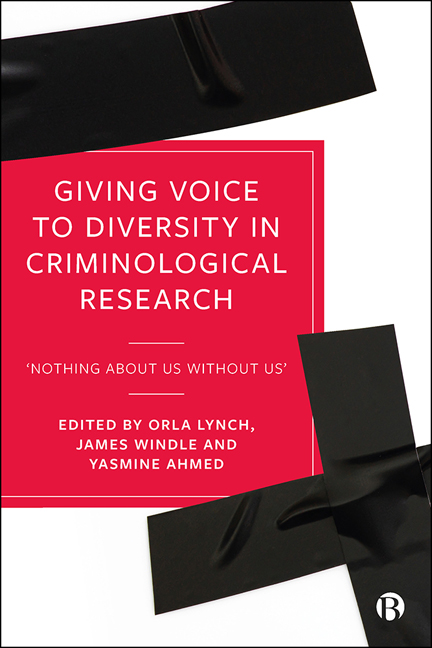2 - Working Together to Create Change: Theory, Experience, and Praxis
Published online by Cambridge University Press: 13 May 2022
Summary
In this chapter we highlight the benefits of using participatory action research (PAR) based upon our long histories of using this approach in our research on sex work, with sex workers and wider communities including residents, criminal justice agencies, and other stakeholders. We draw upon one particular example in our collaborative research that combines participatory arts (PA) with PAR. The chapter opens by articulating the methodological approach of PAR, how we used this method, and how we combined this with PA, highlighting the importance and value of the arts in research. We go on to share some of the findings that emerged from our arts-based research with sex workers and suggest how researchers might bridge the gap between theory, lived experience, and praxis in order to do social justice and work together to create change. With ‘nothing about us without us’ now perhaps the main banner of the sex worker rights movement globally (ICRSE, 2015), signifying a call for the meaningful involvement of sex workers in policy, programmes, and services around sex work, we argue PAR-related research can offer a framework for sex worker inclusion and contribute to transforming policy.
Participatory action research and participatory arts: benefits and challenges
For us, in our joint and separate research on sex work that began for Maggie in 1989 and for Rosie in 1995, the roots of our work were in feminist and ethnographic approaches that sought to learn from the voices and experiences of those on the margins of our social worlds while also creating space for people to be seen and heard, to join us at the table. The importance of life history research and meeting people where they are at enabled us to better access the complexity of lived relations and lived experience and also to think about the interrelationship between the immediacy and everyday aspects of our lives and broader social, political, and cultural structures of power and inequalities in order to better understand and advocate for social change.
Identifying and drawing upon participatory methods was for us an important aspect of doing research ‘with’ not ‘on’. Martin O’Brien (2013) has drawn upon Gouldner's analysis to, quite rightly, argue against sociology or criminology as zookeeping. Gouldner critiques Becker for doing Sociology that ‘expresses the romanticism of the zoo curator who preeningly displays his rare specimens’ (Gouldner, 1973: 37–8, cited in O’Brien, 2013).
- Type
- Chapter
- Information
- Giving Voice to Diversity in Criminological Research‘Nothing about Us without Us’, pp. 17 - 42Publisher: Bristol University PressPrint publication year: 2021

